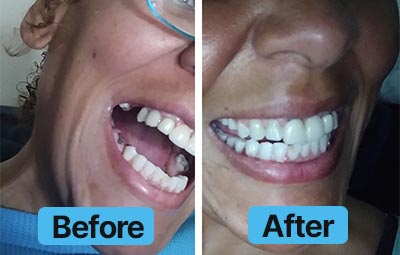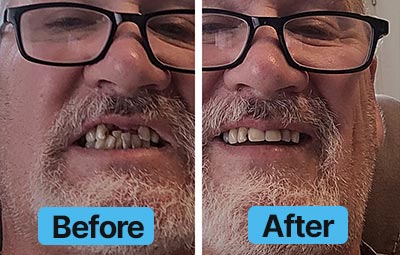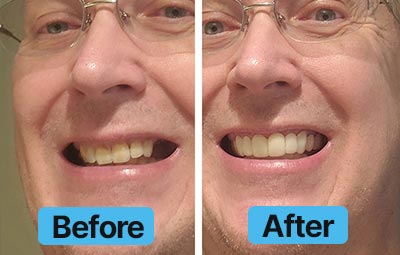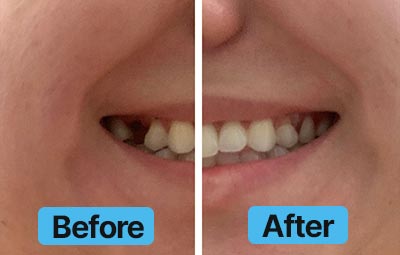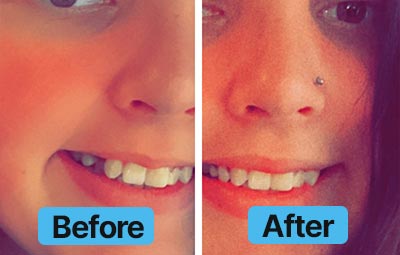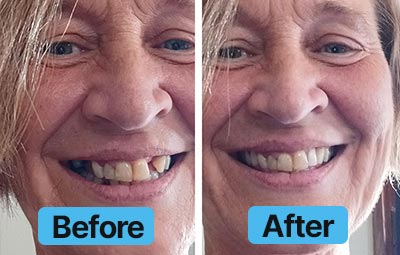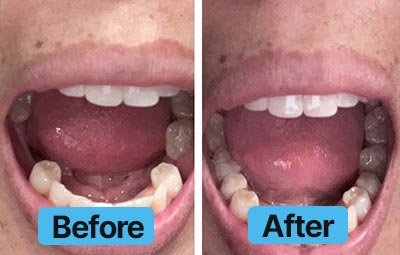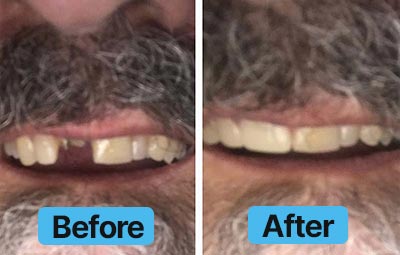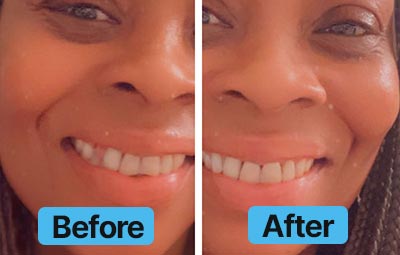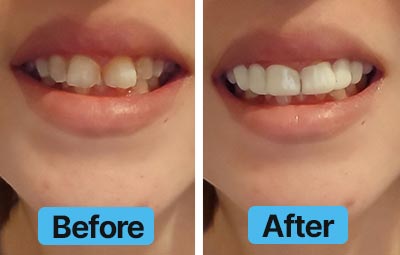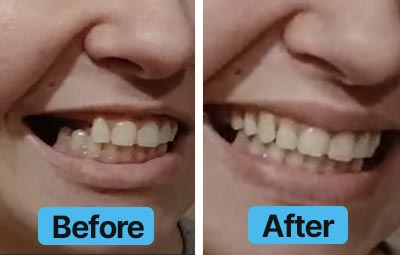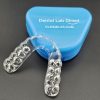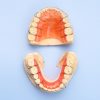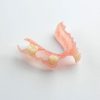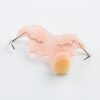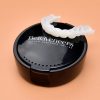You brushed, rinsed… now the big question: can you sleep with dentures?
Dentures are worn by over 40 million Americans, and you’re not the first person to ask if dentures need to come out every night or if it’s fine to leave them in.
Below, we’ll explain why dental professionals generally recommend removing dentures before bed and what you should know before sleeping with dentures in.
Can You Sleep with Dentures Safely?
Technically, you can fall asleep with dentures in, but dentists caution against it. The American Dental Association (ADA) advises removing full or partial dentures overnight to maintain oral health. This is because of cleanliness and the risk of infection.
Wearing dentures 24/7 can trap bacteria and fungus against your gums, potentially leading to gum irritation or denture-related stomatitis (a type of yeast infection of the tissues).
And much like taking your shoes off at the end of the day to let your feet breathe, your gums and jawbones also deserve a rest.
Choking hazard is another safety issue, especially with partial dentures. If dentures become loose during sleep, there’s a risk of dislodgement, and in rare cases, a loose denture could slip toward the airway and be accidentally inhaled. Sleeping with a well-fitted denture using a strong adhesive might lower this risk, but is it worth it?
If You Must Sleep with Dentures (Rare Exceptions & Tips)
Life isn’t always ideal, and there may be times you do end up sleeping with your dentures.
One common exception is right after getting immediate dentures (dentures placed on the same day as tooth extractions). Dentists will often tell their patients with new immediate dentures to wear them for the first 24 hours (including overnight) to help control swelling and act like a bandage on the extraction sites.
Otherwise, you need to let your gums rest for between 6 and 8 hours a day.
Perhaps you feel self-conscious without teeth at night, or you worry about being seen by a partner. If you occasionally choose to sleep with dentures for these reasons, here are some tips to do it more safely:
- Use a quality denture adhesive if you’re going to sleep in your dentures. A thin, even layer can help keep the denture from moving or falling out.
- Never go to bed with dirty dentures. Food particles and plaque on dentures can cause rapid bacterial growth in the dark, moist environment of your mouth. If you’re wearing dentures overnight, it’s doubly important to brush and rinse them before bed. Ideally, try to also rinse your mouth and any remaining natural teeth or gum ridges.
- Don’t make it a habit to sleep with your dentures every night. Maybe you choose to do it on rare occasions, like traveling or staying overnight with guests, but even then, you need to give your mouth a break for at least 6 hours in the day. At the very least, don’t wear it the next night.
- Breathing with your mouth open, which is fairly common when you sleep, can dry out your mouth, and a denture can exacerbate dry mouth. A dry mouth can increase bacterial growth and discomfort, so if you have to keep dentures in, sip some water before bed and after you wake, or use a humidifier in your room to have some moisture.
So, can you sleep with dentures? If needed, but above all, listen to your body. If sleeping with dentures causes you any pain, sore spots, or makes you cough/choke, don’t do it.
The Best Nightly Denture Routine
Can you sleep with dentures if you follow a great nightly routine? Well, it certainly can’t hurt! Generally, no, but if you’re going to anyway, you might as well make it as safe as possible. For optimal oral health and denture longevity, here’s what dental professionals recommend you do each night:
- Take your dentures out before you go to sleep and rinse them under running water to dislodge food debris.
- Use a soft denture brush or toothbrush with non-abrasive denture cleanser (or mild soap/water) to brush all surfaces of the dentures.
- Store your dentures immersed in water or a denture soaking solution while you sleep (or when you’re not using them) since keeping them moist prevents the material from drying out and warping. An added benefit of soaking is that it can kill lingering germs.
- With the dentures out, take care of your mouth. Gently brush your gums, tongue, and any remaining teeth with a soft toothbrush.
Bottom Line
Can you sleep with dentures? Yes, but it isn’t good for you. Removing your full dentures or partial dentures overnight is the healthiest practice. It protects not only your oral tissues and overall health, but also the dentures themselves.
So while you can sleep with dentures, the wise move from a dental perspective is to give them (and your mouth) a rest each night. Your gums will thank you, and you’ll reduce the risk of unwanted complications.
If you’re ready to invest in your smile with dentures, Dental Lab Direct can help you save thousands in dentist fees and deliver them straight to your door. Check us out today!
 60 DAY warranty on all custom-made products | 1,000+ 5 Star ★★★★★ Reviews
60 DAY warranty on all custom-made products | 1,000+ 5 Star ★★★★★ Reviews

